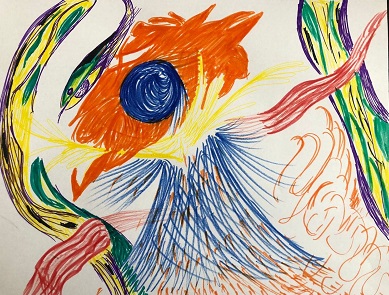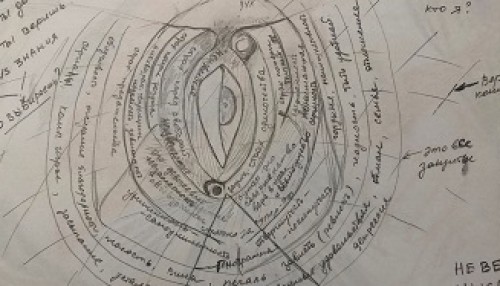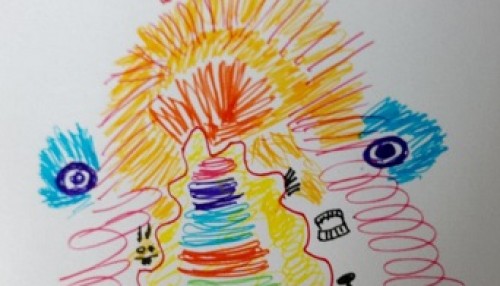The Six Yogas of Naropa is a system of practices first unified by Tilopa, but extended under the name of his disciple Naropa.
In
the heyday of Tantric Buddhism in India, there were hundreds of
Buddhist tantra systems, most of which belonged to the upper class of
anuttara yoga tantra. Apparently initially, each tantra was a complete method for achieving
awakening, but later the Mahasiddha yogis began to combine methods from
different tantras to achieve the greatest effectiveness, which led to
the emergence of such systems as the Six Yogas of Naropa, the Six Yogas
of Sukhasiddhi and others.
It is said that
- yoga tummo and yoga karmamudra that deals with sexual practices come from Hevajra Tantra,
- Yoga of the illusory body - from the Guhyasamaja Tantra
- Yoga of clear light - from the Chakrasamvara tantra,
- Yoga of dreams - from the Mahamaya tantra,
- and two yogas - the transfer of the mind
- and the transmigration of consciousness - came from Sri Chatuhpitha Tantra.
For the first time, the Six Yogas united in a single system of yogin-mahasiddha Tilopa.
- According to Tilopa, the transmission of the yoga of Inner Heat comes from Siddha Charya,
- The Illusory Body and the Clear Light are from Nagarjuna,
- Yoga of Sleep - from Lavapa,
- The transfer of Consciousness and the Intermediate State is from Sukhasiddhi.
This complex of Tilopa passed on to his closest disciple - Naropa.
Although
the practices included in this complex were first introduced not by
Naropa, they became known by his name, since it was his authorship that
owned the first more or less detailed written manual on these yogas -
"Manual on the Six Exercises" (Sanskrit Shaddharmapadesha ).
Although this work adopted a different classification of these yogas, the following list was widely spread:
1.
Yoga of inner heat (Skt. Chandali-Yoga, Tib. Gtum mo), the basic
practice of the Six Yogas of Naropa, in which the habitual tendencies to
greed and attachment are transformed and the wisdom of the union of
bliss and emptiness (shunyata) deepens. In yoga of internal heat, concentration is applied to the energy center located in the navel;
2.
Yoga of clear light (Sanskrit Prabhasvara-Yoga, Tib. 'Od gsal'), in
which concentration on the energy center located in the heart area is
used to train awareness in the deep sleep phase. The meditator practices until he attains a state of radiant clarity,
in which all manifestations are seen as a game of clarity and emptiness
(shunyata).
3.
Yoga of dreams (Sanskrit Swapnadarshana-Yoga, Tib. Mi lam), which
allows to keep awareness during the dream stage with dreams. Here, concentration is applied to the energy center located in the throat region;
4.
Yoga of the illusory body (Skt. Mayyadeha-Yoga, Tibet Gyulu), through
which the meditator learns to see all manifestations of the mind in the
waking state as the illusory body of Yidam. Concentration is used on the energy center located in the forehead region;
5. Yoga of the intermediate state (Sanskrit Antharabhava-Yoga, Tibet
Bardot), used to recognize the inseparability of clarity and emptiness
(shunyata) in the intermediate state between the death of one body and
the conception of the next;
6. Yoga of consciousness transfer (Skt. Samkranti-Yoga, Tib. Pho ba),
which allows the use of the process of dying of the physical body to
achieve Enlightenment;
The basis, path and purpose of these yogas is Mahamudra.
These six practices are designed to "
so that the practitioner learns to keep the clarity of consciousness always,
in whatever state the body and mind are, in particular
- wakefulness,
- dream with dreams,
- deep dream,
- meditation,
- dying and
- the period between the death of the body and the conception of the next.
Through the
disciple of Naropa Marpa, the Six Yogas were brought to Tibet and the
"traditions of the new translation" - sakya, kagyu and gelug - spread
widely in Buddhist schools.
To be continued…















































КТО КУДА !?
!?
А МЫ идем дальше
08.05 09:03